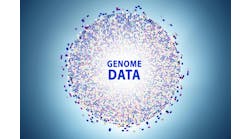Intermountain Precision Genomics, a service of Intermountain Healthcare, is offering genomic innovation grants for research projects that organization officials believe will lead to advancements in precision medicine.
The awards, called Genomic Innovation Grants, worth up to $200,000, will aim to provide opportunity for scientific collaboration and offer funding toward Intermountain Precision Genomics research services—including next-generation sequencing, sample procurement, bioinformatic analysis, and more.
The grants will support biomedical research proposals that have potential for direct clinical application. Investigators with such proposals are encouraged to apply.
“Translational research plays an important role in Intermountain Healthcare’s mission to help people live the healthiest lives possible,” David Jones, senior scientific program director for Intermountain Precision Genomics said in a statement. “Genomic Innovation Grants combine our translational research services with innovative research ideas to champion new discovery and further precision medicine and its clinical application.”
Past grant recipients include Vivid Genomics, Immortagen, and Huntsman Cancer Institute. Studies by those organizations include research aimed at identifying genetic predictors of Alzheimer’s, developing an artificial-intelligence algorithm that predicts cell response to cancer therapeutics, discovering breast cancer susceptibility variants, and exploring genetic epidemiology of ovarian cancers in high-risk pedigrees.
It’s anticipated that project awards will result in one or more collaborative peer-reviewed articles in conjunction with Intermountain and provide pilot data for larger partnered endeavors, officials noted.
“The opportunity for collaboration through these grants has the potential to elevate the best research ideas and bring innovative proposals to life,” said Helaman Escobar, senior director of translational science at Intermountain Precision Genomics. “Our biorepository of more than 4.5 million retrospective DNA samples, clinical outcomes data, and customizable patient cohorts alone is a huge asset to any study.”
Interested researchers or groups should submit their research proposals by November 15.

